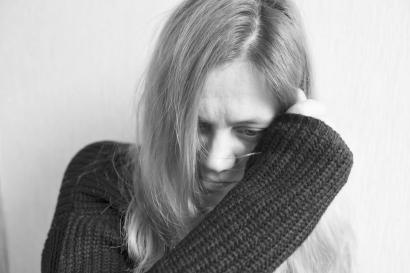
Seasonal Affective Disorder (SAD) is a recurrent, seasonal pattern of depressive episodes. Most commonly, the episodes begin in the fall or winter and go away in the spring or summer, but for some people, the opposite is true. Some individuals become depressed in the summertime.
SAD is like depression, but with its own additional symptoms. Winter SAD has the sadness, lack of enjoyment, and fatigue of depression, hypersomnia (wanting to sleep all the time), carbohydrate craving, and social isolation (hibernating). Summer SAD is also like clinical depression, but has symptoms such as agitation, trouble sleeping, anxiety, poor appetite, and weight loss.
Winter SAD Treatment
Bright Light Therapy (BLT) is the gold standard for the treatment of winter SAD. BLT is a treatment based on the theory that loss of summer sunlight is the cause of winter SAD. In the winter, the intensity of the sunlight is much less because of the angle of the earth. For individuals who suffer from winter SAD, inside lighting, or even spending time outside in the winter, does not provide enough needed light to lift mood. Bright Light Therapy uses a very bright full spectrum light that mimics sunlight and helps improve mood. A therapeutic Bright Light Therapy lamp should provide 10,000 lux, which is a measure of brightness.
This therapy simply requires sitting next to a full-spectrum (10,000 lux) lamp for 15 to 30 minutes per day. Individuals may begin to experience increased energy, improved mood, decreased drowsiness, and decreased fatigue in as little as 3 to 7 days. An advantage of Bright Light Therapy is the ability to manage symptoms of depression without medication, which often comes with negative side effects such as weight gain, sexual side effects, and dry mouth. It is also cost effective. The cost of a full-spectrum light typically runs between $40.00 and $500.00. Unfortunately, this is not considered to be a reimbursable expense by insurance companies.
Some individuals have reported that they have experienced headaches or eyestrain with the use of full-spectrum lights. Adjustments in the amount of time spent in front of the light or closeness to the light may be helpful. Like antidepressants, the use of Bright Light Therapy has a potential to trigger hypomania or mania (too much energy, irritability, agitation). Anyone who experiences these effects should consult with their physician.
Other Treatments for SAD
Antidepressants (SSRIs/SNRIs like Prozac, Paxil, Zoloft, Celexa, Lexapro, Effexor, etc.) or Wellbutrin (Bupropion) can also be helpful for individuals experiencing depression that correlates with the change in seasons. Some people who are depressed in the winter are deficient in Vitamin D. Check with your doctor to see if adding a Vitamin D supplement may be beneficial. A mental health therapist can help individuals learn to manage seasonal symptoms of depression. Therapists often use Cognitive Behavioral Therapy (CBT) to help clients learn how to change their patterns of thinking and behavior to reduce negative thoughts and feelings. Symptoms of depression that become more evident with the changes in season may be exposing other area of emotional distress. A therapist can help clients work through this as well.
Summer SAD
In contrast to winter SAD, where we want to INCREASE sun exposure, we want to DECREASE exposure to sun and heat to treat depression for individuals experiencing summer SAD. People with summer SAD should spend more time in darkened areas than outside. Staying in air-conditioned rooms and wearing protective sunglasses when outside is recommended. People with summer SAD should adjust their sleep schedules so they get more sleep during the summer months. Antidepressants and psychotherapy can also be used for people who experience depressive symptoms during the summer months.
Additional Information on Seasonal Affective Disorder
National Institutes of Mental Health: https://www.nimh.nih.gov/health/publications/seasonal-affective-disorders
Innerbody Research: https://www.innerbody.com/seasonal-affective-disorder
Johns Hopkins University School of Medicine: https://www.hopkinsmedicine.org/health/conditions-and-diseases/seasonal-affective-disorder
Mayo Clinic: https://www.mayoclinic.org/diseases-conditions/seasonal-affective-disorder/symptoms-causes/syc-20364651
Susan Boyd, MD is a psychiatrist working with patients in Brook Lane’s hospital on the main campus. She is certified by the American Board of Psychiatry and Neurology. Dr. Boyd has provided treatment in a number of settings including inpatient, outpatient and specialty clinics. She is a graduate of the University of Maryland School of Medicine and completed her residency in Psychiatry at the University of Maryland, Baltimore, MD.

